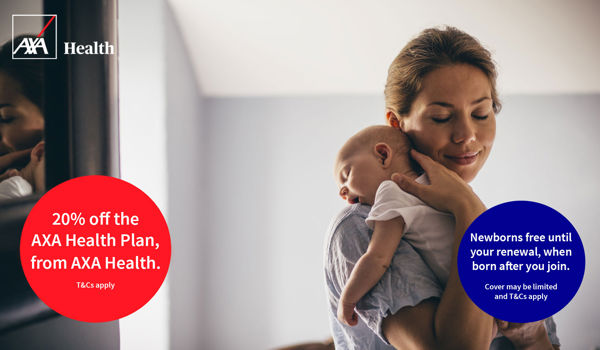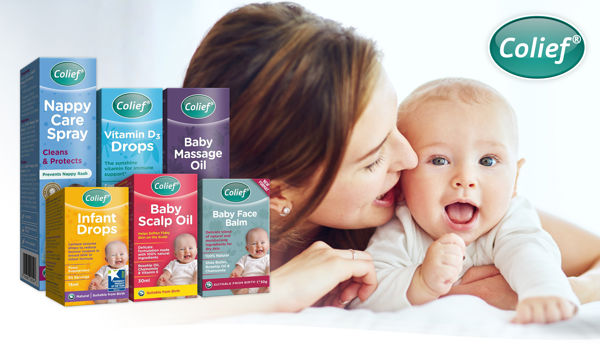So, you’re thinking about trying for a baby and are probably wondering what the best way is to track your periods and ovulation windows, whilst being discreet. You want something that’s accurate and something that will store data for you, analyse it and ultimately, help you get pregnant. Well, we got you! Boasting high success rates, the following apps not only track your periods, tell you when you’re ovulating and when to expect those dreaded PMS days, but they’ll also tell you the perfect time to ‘get bizayyy’ to heighten your chances of conceiving.
With all of the below, you are able to track period regularity and length, your fertile windows, log your symptoms and set reminders. You’ll also be able to link them to other apps including Apple Health, Google Fit, Fitbit and Oura to provide the apps with more accurate predictions to track your overall fitness, weight, sleep and health more closely in relation to your cycle. These 7 apps are great for keeping a record of everything and knowing when is best to start trying for your own little bundle of joy:
Clue - FREE with optional in-app purchases (App Store & Google Play)
One I’ve personally used for years to keep track of periods whilst using the coil, it’s always kept me up to date with when I’m most fertile (for when I do eventually decide to start trying), and pre-warn me (and my husband) when my PMS days are coming up so we can stock up on chocolate, cosy pyjamas, ice cream and a selection of chick-flicks - what can I say, I’m a walking cliché. To help you become pregnant, you can also track things like discharge (ew, I know), basal body temperature (BBT), emotions, sleep, exercise, weight and sex so Clue’s algorithms can get to work on calculating the best time to try and maximise your chances of conception. You can also subscribe to Clue Plus (for around £1 a month) which gives you a better forecast of what’s coming including improved accuracy and enhanced analysis. With over 8 million users in over 180 countries, the interface is foolproof, sleek and simple, a great app to get you started.
Flo - FREE with optional in-app purchases (App Store & Google Play)
Another favourite in the office is Flo, which boasts over 80 million users worldwide. With all the same capabilities of Clue, Flo goes that little bit further and immediately analyses your daily symptoms and suggests personalised articles, for example, if you’re stressed, it will give you helpful articles about de-stressing as well as other interesting reads. You can even customise your app with different wallpapers and day marking styles which is a nice little touch. To help you fall pregnant, during your forecasted fertile window, the app also gives you a low/medium/high chance rating of falling pregnant if you tried to conceive that day, taking out the guesswork and giving you a better chance of ‘gender swaying’ [insert article link], if you were trying for a particular gender. Flo Premium (free 30-day trial) offers additional personal support and articles by medical experts, though what you get for free is pretty darn good already!
Glow - FREE with optional in-app purchases (App Store & Google Play)
Like Flo, Glow allows you to select your intentions when signing up, giving you a different set of options than if you were avoiding pregnancy as the apps can all be used for trying as well as avoiding pregnancy. To track your fertility and ovulation, you can input daily occurrences like sex (if you’re lucky!), ovulation tests, BBT, symptoms and mood to give you a detailed forecast of your predictions, including the chance of pregnancy each day as a percentage, regardless of whether you’re in your fertile window, which I think is a bit more informative than the three-point low to high scale. The app also displays relevant articles, polls and videos to help you learn more about periods, ovulation, conception and pregnancy. It is also one of the few apps available that allows you to add your partner, so you manage your fertility together through linked accounts. This can help you track their health alongside your own, as well as log their semen analysis and genetic testing so all areas are covered. Glow Premium (costing less than £3 a month on a yearly plan) gives you advanced analytics and metrics to track, forecasted symptoms like bloating, sickness and tender breasts and offers comparative insights with other users, and scientific cycle analysis as well as meditation sessions, premium articles from leading physicians, discounts and rewards and support from Glow’s team, which will all be available across all 4 of Glow’s apps; probably one of the more comprehensive Premium versions I’ve come across, as the others don’t offer many extra features on top of the free ones. Once you fall pregnant, you can download the Glow Nurture app, which will then continue your journey with added features including tracking the size of your baby as it grows, what to expect at each week and keep track of your symptoms and health by connecting to a wider range of devices such as Jawbone and apps like MyFitnessPal.
Ovia - FREE (App Store & Google Play)
Ovia annoyingly is quite US-focussed as it is offered as an employee benefit in America, however, UK users can use all of the same features like tracking your fertile window. Unlike the other apps, Ovia gives you its own algorithm-created fertility score rather than a percentage/rating, which is really simple and straightforward. This score is between 1 and 10, with a score of 7 or higher indicating a high chance of conception. Ovia also gives you a forecast over 14 days to show when your fertility score (chance of conception) is at a 10/10 so you know when to try to conceive. Your dashboard is customisable with different colour themes, with lots of tips, articles, insights and log tracking as you scroll your main page. The calendar interface is quite different from the other three apps and there are a LOT more options when it comes to your moods, symptoms and overall health. In addition to the standard things these apps allow you to track, there’s also an option on Ovia to track your cervical position, your nutrition, prenatal vitamins and blood pressure. If you’re looking for an app that basically tracks everything possible, this is the one for you. What’s also nice about this app is the community element. One of the lower menu tabs opens you up to the whole world of Ovia users in a forum style inbox where you can post, talk with others, ask questions and receive support, great if you’re embarrassed to ask people you know!
There are also a few apps out there that work alongside gadgets. From BBT thermometers to smart bracelets, these apps are the best out there to help you get pregnant and boast a more accurate reading than those relying on your inputted data, however, do require an upfront cost to buy the gadget
Ava - FREE app + £6.90pm annual subscription + £149 upfront for bracelet. (App Store & Google Play)
Ava is a small, wearable medical device attached to a bracelet that, when worn while you sleep, will record 5 ‘physiological signals of fertility’ and detect your 5 most fertile days in real-time. Using multiple parameters to give you exact start and finish dates of your ovulation window, Ava boasts over 89% accuracy which can be improved after collecting more readings from you and monitoring your regular cycles. Overnight, the bracelet can monitor skin temperature, resting pulse rate, breathing rate, heart rate variability ratio, perfusion (the process of supplying blood to blood tissues), movement and sleep. The bracelet removes the need to input many parameters themselves and offer a more scientific, results-based insight into your cycle and ovulation, without the risk of human error when inputting data. It even serves as a health and wellbeing monitor for when you do fall pregnant, logging your stress levels, weight and how your body responds to your baby’s development in the womb. The app is very straightforward, giving you an overview of your daily and weekly readings, as well as your monthly fertile window and peak fertility predictions. The log only gives you the basic of options, including a limit range of moods, bodily symptoms which keeps the app nice and concise. The homepage will give you that day’s chance of fertility as well as some interesting facts and articles. Overall, its a great option for those of you who don’t want to record your temperature through your vagina (though, this is hardly a time to get squeamish!).
OvuSense - FREE app + £199 for 12 months subscription, including sensor (App Store & Google Play)
OvuSense boasts an incredible 99% accuracy with its vaginally inserted sensor (just like a tampon) that syncs wirelessly through a dock each morning. Not only does it track your menstrual cycle using your previous cycle data and predict your ovulation date 24 hours in advance real-time, confirming again once you are actually ovulating, but it also is used by clinicians in hospitals too so you know it's going to be good. What’s great about this method of tracking, is that it's one of the few methods that is really suitable for everyone as it allows those with irregular cycles or those who suffer from PCOS and other ovulatory issues to accurately track everything from BBT to heart rate and self inputted data such as any supplements or medications you may be taking. The tracking can also help diagnose any ovulatory issues you were otherwise unaware of and give you access to private members support groups and consultation with a fertility nurse. If you’ve been trying for a baby for more than 6 months, this is the device and app for you.
Kindara - FREE (App Store & Google Play)
Though this app works on its own, giving you insight into menstruation days, quantity and consistency of your cervical fluid and sex, connecting it with their own BBT thermometer, called Wink, syncs seamlessly for easier tracking and opens you up to tracking lots more data. This thermometer is placed under the tongue at the same time (crucial) every morning and then automatically sends that information to your Kindara app, giving you better, more accurate data to predict your ovulation and analyse your fertility, compared to just inputting the standard metrics other apps require. The app doesn’t go as in-depth into symptoms as many of the other apps mentioned above, but it does what it says on the tin and gives you data about your peak ovulation days and recommends the best days to have sex when your chances of conceiving are highest. You can actually use the Kindara app with any BBT thermometer, so it isn’t necessary to purchase Wink, making this app much more open to everyone.
Whether you’re trying to become pregnant now, or are thinking about trying soon, any of these apps can help you do it, but it’s up to you how you choose to track things, whether it be through a gadget for higher accuracy, or through data you input yourself, keeping a log of your cycle and knowing when you’re most fertile gives you the best chances. If it’s taking you several months without any luck, it’s best to consult a fertility doctor who can run some tests and help you identify what may be the cause. Best of luck to all of you, we hope to see lots more baby announcements on our timelines soon!



